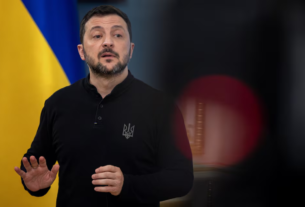David Dreyfus, an Australian Parliament member, has strongly condemned the politicization of anti-Semitism amid attacks on Foreign Minister Penny Wong. The criticism directed at Wong has centered around claims that she has not done enough to address anti-Semitism in Australia. Dreyfus rejected these accusations, stating, “Politicizing such a serious issue is grotesque and distracts from the real fight against racism.” He emphasized that issues like anti-Semitism should not be used for political gain.
Opponents of Wong have argued that as Foreign Minister, it is her responsibility to take a strong stance against anti-Semitic remarks and actions. Dreyfus, however, pointed out that this attack on Wong oversimplifies the situation and fails to address the broader issue of racism in society.
Dreyfus argued that the focus should be on combating all forms of racism, not just anti-Semitism. He believes political leaders should work together to create solutions that unite society against all types of hate rather than using issues like anti-Semitism to further political agendas.
Dreyfus and various Jewish organizations in Australia have criticized the attacks on Wong. These groups argue that the focus should not be on blaming individuals but on strengthening laws and educational programs to prevent anti-Semitism and other forms of hate. Dreyfus echoed this sentiment, suggesting that policies and public awareness campaigns should be prioritized to ensure long-term solutions.
Many political leaders and commentators have pointed out that the attacks on Wong risk diverting attention from the core issue: the growing problem of racism. Instead of blaming one individual, Dreyfus insists that a broad approach is needed to address the systemic roots of hate. He added, “We need laws, education, and public awareness campaigns, not political gamesmanship,” clarifying that real change requires action on multiple fronts.
Wong, for her part, has defended her record and actions against anti-Semitism, stating that she has always stood firm against all forms of discrimination. She argues that her efforts to address hate speech have been consistent and that more should be done to tackle the root causes of anti-Semitism. However, critics have used her handling of the issue as a point of attack, seeking to undermine her leadership.
For Dreyfus, the political attacks on Wong are distracting from the real problem of racism in society. He believes the focus should not be on blaming specific individuals but on addressing the broader issue through policy changes and education. He stressed the importance of creating a society where hatred is not tolerated in any form, whether directed at Jewish communities or any other group.
Dreyfus’s criticism of the politicization of anti-Semitism reflects a more significant concern about how race issues are handled in Australian politics. Instead of using race as a weapon in political battles, he advocates for a more thoughtful and unified approach to combating hate. He added, “The real victory lies in working together to dismantle the structures that allow hate to thrive,” calling for a collective effort to make Australia more inclusive and tolerant.
This debate over Wong’s handling of anti-Semitism highlights the challenges faced by political leaders in addressing racism in a divided political climate. Dreyfus’s call for a unified approach suggests that politicians prioritize long-term solutions over short-term political gain. The solution to racism and anti-Semitism will require cooperation and sustained effort, not divisive rhetoric and finger-pointing.
As the public discourse continues, whether Australian politics can move beyond this issue remains unclear. The outcome of the debate will have lasting effects on how the government addresses racism in the future. Dreyfus’s message is clear: to progress in the fight against hate, politicians must set aside political differences and focus on creating a more inclusive society for all.




